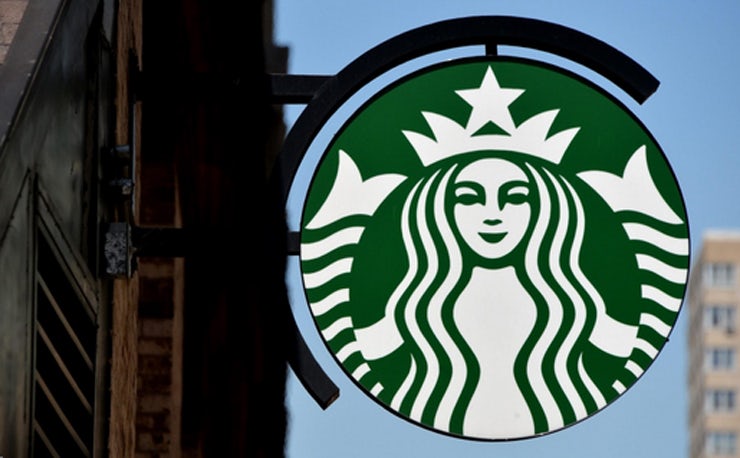The risk and rewards of brands taking on Trump
As both Starbucks and Uber receive very different reactions after taking a stand in Trump matters, marketing experts weigh up whether brands should get involved.

A lot can happen in 12 days. But few would have expected President Donald Trump to make so many radical changes in such a short space of time following his inauguration.
In particular, Trump’s executive order to suspend the US refugee admissions system for 120 days and to ban all entry of citizens from seven Muslim-majority countries has been met with widespread anger. In fact, hundreds of thousands continue to take to the streets globally to protest against the controversial changes.
And it isn’t just the public, brands are getting involved too. Starbucks, for example, has announced plans to hire 10,000 refugees over the next five years across the 75 countries it operates in. Airbnb, meanwhile, has offered free accommodation to those impacted by the travel ban, while Jeff Bezos, CEO of Amazon, says the ecommerce giant’s legal and lobbying teams will also help fight the ban.
Although the stance of Starbucks has resulted in some Trump supporters threatening to boycott the coffee chain, there’s been widespread praise on social media. And it appears to have had an impact on its brand health score too. According to YouGov’s BrandIndex, Starbucks’ reputation score has increased by 5.9 points to a score of -3.1 over the last week. This is the second biggest weekly rise on a list of 38 of the biggest fast food and drink brands.
The pros and cons
The Starbucks’ move was of relatively low risk, according to Brand Finance’s Robert Haigh. “Starbucks customers are part of the ‘liberal metropolitan elite’, it does not have a large presence in Trump’s heartland and is well known for a relatively liberal political stance so this is unlikely to antagonise its existing customer base,” he explains.
However, Cranfield University professor of political marketing Paul Baines claims the move might not be as risk-free as Haigh claims.
READ MORE: Marketing in the age of Trump
He ponders: “Even those who agree with the Starbucks’ policy on hiring immigrants may feel that it is not the place of a company like Starbucks to get involved in such issues and so they may perceive a ‘jumping on the bandwagon effect’. They might therefore perceive ‘manipulative intent’ on the behalf of Starbucks – that this policy pronouncement is a marketing ploy.”
So should brands really be getting involved when it comes to matters pertaining to Trump? Baines says history has plenty of examples of brands taking a political stance on controversial issues. “Remember the ‘bloody soldiers’ Benetton ads of the 1990s? This Starbuck’s pronouncement is a similar stance to that but perhaps on an even more divisive issue,” he adds.
But brands that capitalise on political matters aren’t always successful either. Baines cites furniture brand Habitat, which was strongly criticised over social media for trying to promote its products on sale using hashtags linked to the 2009 Iran protests.
Marketers becoming ‘too political’

According to marketing leadership expert Thomas Barta, a lot of senior marketers have lost sight of reality by getting too involved. “Marketing’s role is to serve customers sustainably better that competitors do—that excludes politics,” he firmly suggests. “But shouldn’t marketers do good? Absolutely! But brand marketing and politics are simply two different things.”
One brand that has suffered from the Trump buzz is Uber. There has been a suggestion it could profit from the ban of Muslims into the US, with its CEO Travis Kalanick one of a number of executives chosen as advisors to Trump on economic issues.
As a result, the hashtag #BoycottUber has been widely shared on social media and its buzz score – a balance of consumers’ impression of a brand’s quality, reputation, value and satisfaction – has fallen 3.8 points to a score of -10 over the last week, according to YouGov’s BrandIndex. This is the steepest fall on a list of 29 transport brands.
Starbucks getting involved in this issue could be perceived as it jumping on the bandwagon
Professor Paul Baines, Cranfield University
In the wake of this, Brand Finance’s Haigh advises: “Most brands, including Uber, will have a broad customer base across all political persuasions, so perhaps an apolitical stance is advisable.”
Yet, he also acknowledges many won’t have any choice bar fighting Trump publically. “Brands in some sectors such as tech will be damaged by Trump’s actions in a very direct, practical way, even beyond brand concerns such as limited availability of labour. So for some they will feel it essential to vocally oppose him.”
The consensus for marketers seems to be rule with your head, not your heart. Should Trump’s foreign or domestic policies directly impact your business, then it could be a good idea to galvanise your brand advocates against the newly-appointed US president. But if you’re just looking to take a slice of what’s trending on Twitter, you run the risk of making your brand look like a predatory opportunist.






